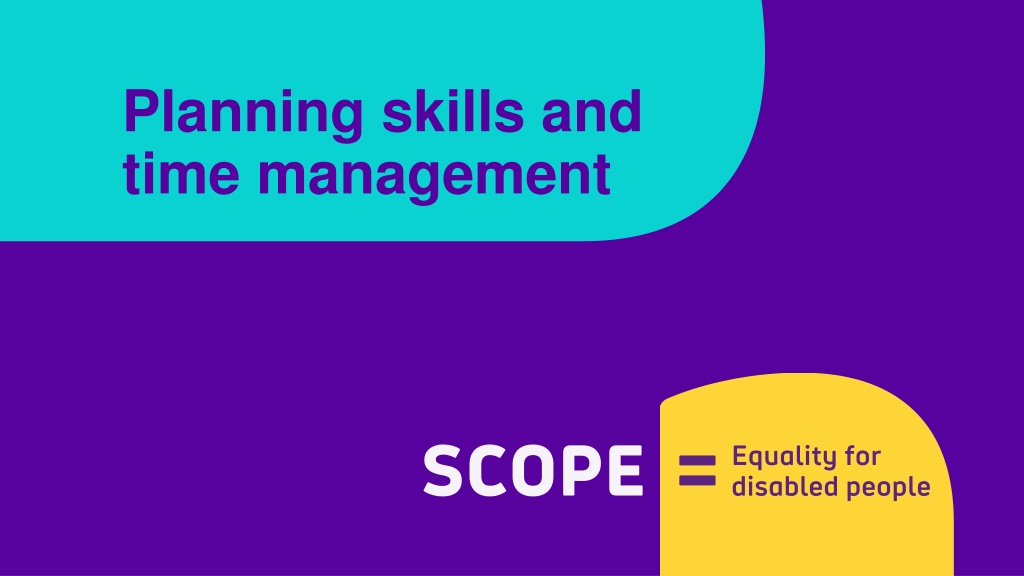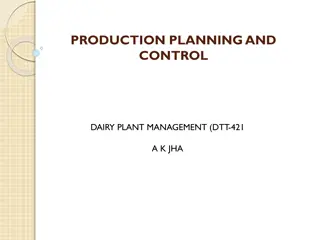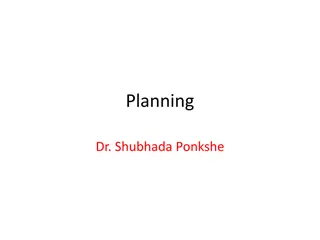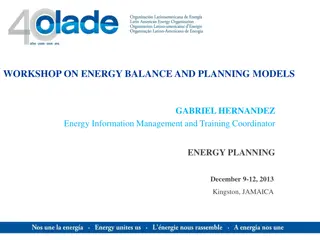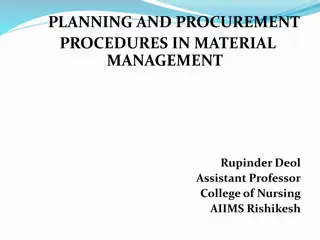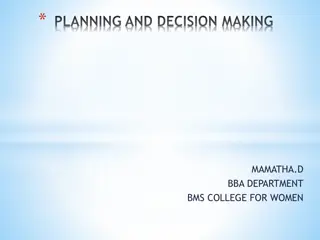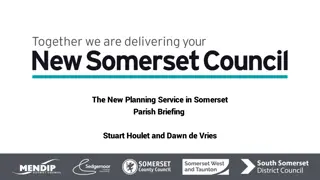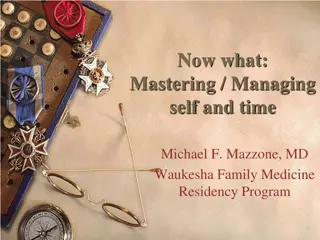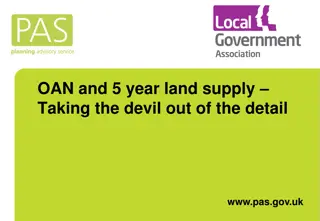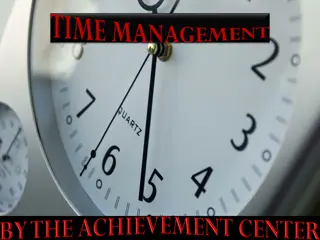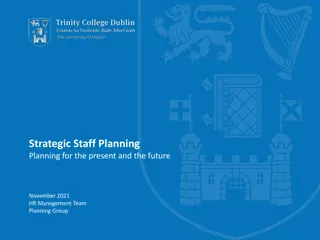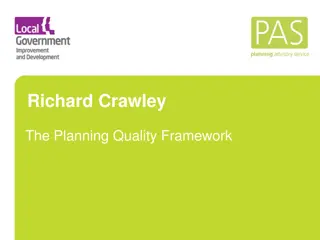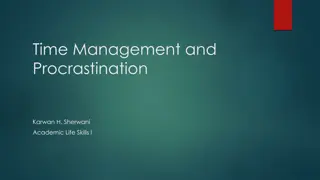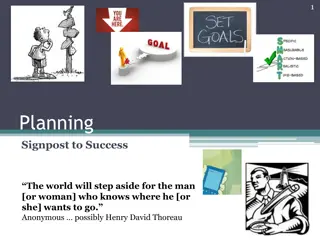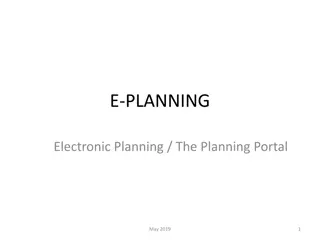Effective Planning for Time Management
Significance of planning in achieving goals, the consequences of not planning, and strategies for organizing time efficiently. Learn to prioritize tasks and enhance productivity to succeed in various endeavors.
Download Presentation

Please find below an Image/Link to download the presentation.
The content on the website is provided AS IS for your information and personal use only. It may not be sold, licensed, or shared on other websites without obtaining consent from the author.If you encounter any issues during the download, it is possible that the publisher has removed the file from their server.
You are allowed to download the files provided on this website for personal or commercial use, subject to the condition that they are used lawfully. All files are the property of their respective owners.
The content on the website is provided AS IS for your information and personal use only. It may not be sold, licensed, or shared on other websites without obtaining consent from the author.
E N D
Presentation Transcript
Planning skills and time management
Objectives To understand the importance of planning To understand what happens when you do not plan To learn about planning and organising time effectively To learn how to prioritise time so that we do what we need to do
The importance of planning Failing to plan is planning to fail
Activity 1 The importance of planning
Why is planning important? Let us begin by thinking about why we plan activities Why is it important to plan for things we want to achieve? What might happen if we do not plan?
Activity 2 Why we plan
When we plan We get all the support we need. We get all the information we need. We are prepared and organised. It helps us to achieve our goals.
When we do not plan We may not get the support we need. We may not have all the information we need. We may not be prepared or organised. We may end up being disappointed. Without planning we probably will not achieve our goals.
When a plan goes well Think of something that you have planned that went well. For example, coming to today s group session or a day out. What did you do to make it a success?
When a plan does not go well Think of something that you have planned that could have been better. What could you have done to improve it? What did you learn from it?
Activity 3 Planning to attend a job interview
The situation You have a job interview next Tuesday, 5 days from now. The company is a 20-minute journey by tube or 45 to 50 minutes by bus. By car or taxi is about 35 minutes. The interview is at 9.30am. You will need to include interview preparation in your plan. Plan your time and list the tasks you will need to complete from now until arriving at the interview.
What do you need to do? 1. Research company and memorise details about it. 2. Decide which smart clothes to wear. Make sure they are clean and ironed. 3. Plan your route. Plan an alternative route. Practise the journey. 4. Confirm interview. 5. Plan your times getting up, leaving the house, bus taxi tube to arrive 20 minutes early. 6. Practise and memorise answers to standard interview questions. 7. Think of questions you want to ask and write them down. 8. Prepare bag or folder. 9. Set your alarm.
Time management is having clear goals having good planning skills being able to organise your time and to prioritise when there are too many tasks and not enough time having a system to manage your diary, tasks and activities being able to negotiate deadlines
Skills for planning your time Managing time is not about always being busy. Things often take more time than you think. If you think something will take 1 hour, allow 1.5 hours to do it. Managing time is not about planning your life away. It s about having the right amount of planned and unplanned time.
Tips for being organised Write things down. The only reason we think we have a good memory is that we cannot remember what we ve forgotten! Use a diary or online calendar to record appointments, meetings and social events. Have a todo list on paper or on an electronic task list on your computer or phone. If you are doing something that requires concentration, turn off your phone or put it on silent so it does not distract you.
Achieving your goals Make a shopping list. Check times of buses. Be efficient Have a haircut. Buy a friend a birthday present. Get a job. Write down what you want to do this week, this month Agree to go to the pub once instead of twice a week. Learn to say no Skip the football match if you do not enjoy going. Give up things you do not want to do If something will take you a long time and you know someone who can help you do it quicker, ask for help. Ask for help Do something that you say you never have time for. Make better use of your spare time
How to prioritise Must do: tasks that you must do today. Should do: tasks that you should do every day. Could do: everything else. Do these in priority order.
Reviewing your actions It's important to review your action plans regularly. Ask yourself the following questions: Has the goal been achieved or changed? Which steps were achieved and why? Which steps were not met and why? If you were doing it again, what would you change?
What is Learn at Scope? Learn at Scope is Scope s eLearning platform. It is exclusively for Scope customers and offers further support to achieve your goals. You can use it on your home computer, tablet or smartphone. It is available 24 hours a day.
What is the Scope job board? The Scope job board is exclusive for Scope customers. It advertises job vacancies with Disability Confident employers. It has a range of job sectors and job types. It is available 24 hours a day and is updated regularly.
How to use the Scope job board Job Board Introduction video
Feedback Let us know what you think so far
